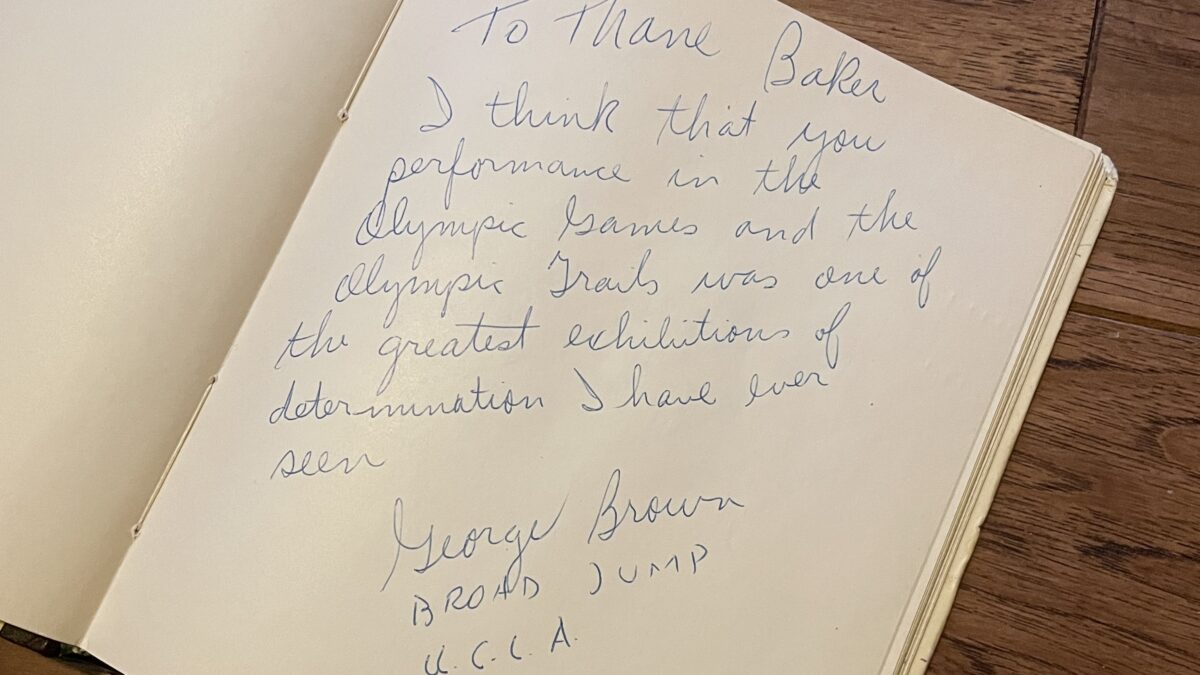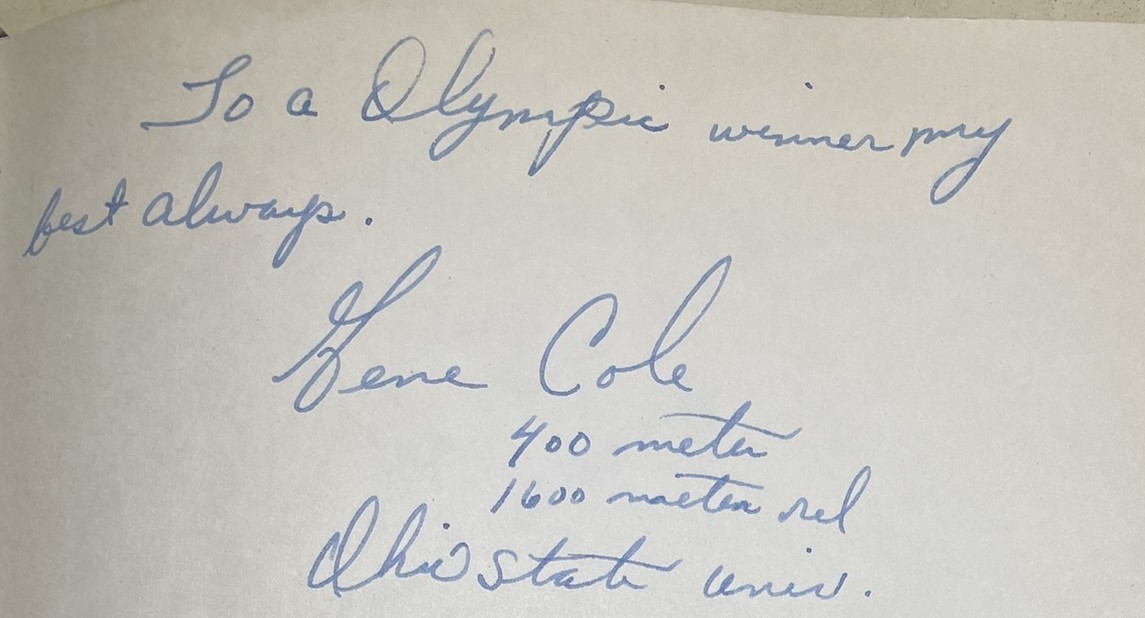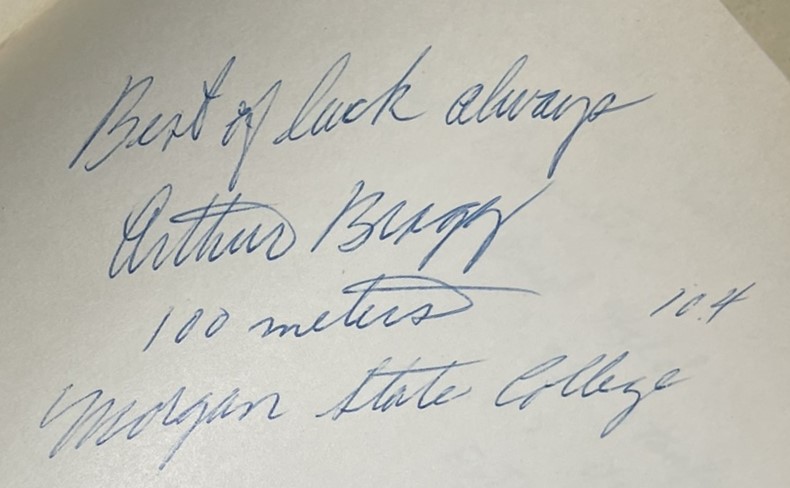
George Henry Brown, Jr. was the favorite to win the broad jump (now called the long jump) in the 1952 Olympics. Going into the Olympic Tryouts, he had won 41 events in a row. He placed third in the Tryouts. He was the repeat NCAA winner in his event in 1951 and 1952 for the UCLA Bruins. He was also the AAU champion in 1951-1953. Unfortunately, the day of the Olympic finals, Brown fouled all his jumps.
Meredith “Flash” Gourdine, a fellow U.S. broad jump competitor spoke of Brown during a recording for his family. Gourdine said that he and Brown roomed together. Gourdine stayed out late every night partying with Andy Stanfield. Brown always tried to get Gourdine out of bed for workouts and team meetings, but Gourdine ignored him. Unlike Gourdine, Brown complied with the Olympic team regulations. Gourdine said he teased Brown a lot in the weeks before the competition.
During the rainy Olympic Finals under deteriorating runway conditions, the crushed red brick underfoot became sloppy. Gourdine said he advised Brown that he just needed one good jump and to play it safe. Gourdine said Brown was frustrated perhaps because despite Gourdine’s lack of work ethic, he was in the silver medal position, or because Brown did not have a good jump in the finals.
Brown ranked number one in the world in the broad jump from 1951-1953 and served in the Army during the Korean War.
Asa S. Bushnell, ed., United States 1952 Olympic Book, Quadrennial Report United States Olympic Committee: Games of the XVth Olympiad Helsinki, Finland July 19 to August 3, 1952, VI Olympic Winter Games Oslo, Norway February 14 to 25, 1952, 1st Pan American Games Buenos Aires, Argentina February 25 to March 8, 1951, (New York: United States Olympic Association, 1953), 106-107; Meredith Gourdine recordings for his family provided to the author by his daughter, Traci Gourdine; Olympedia, s.v. George Brown, accessed March 9, 2024, https://www.olympedia.org/athletes/78160.

